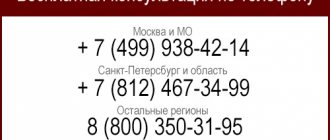Division of debt for utilities among owners (tenants)
155 of the Housing Code of the Russian Federation, from the content of which it can be concluded that payment documents for payment for residential premises and utilities are provided to the owner of residential premises in an apartment building.
We recommend reading: How to cancel a refusal of inheritance Consequently, if the residential premises are in the common shared ownership of several persons, then in accordance with Art.
249 of the Civil Code of the Russian Federation, each of them has the right, depending on the size of his share in the property right, to demand that the management organization conclude a separate agreement with him for the payment of payment for residential premises and utilities. At the same time, the law does not contain a prohibition on payment of payment for residential premises owned by several persons by several owners on the basis of one payment document.
NTVP Kedr
The lawyer drew up an application to defer the court decision and handed it to applicant V. It was also explained to her that the application must be submitted to the Leninsky District Court (which made the decision to collect the debt on payments for living space) in 2 copies in one of the following ways:
Please note => In one month the income was more than the subsistence level, is it considered low-income?
The right to defer a court decision is also enshrined in Art. 203 of the Code of Civil Procedure of the Russian Federation, according to which the court that examined the case, upon applications of the persons participating in the case, the bailiff, or based on the property status of the parties or other circumstances, has the right to postpone or defer the execution of the court decision, change the method and procedure for its execution. Such an application is considered in court.
How to divide utility debt
Theoretically, any adult and capable person who has registration in the disputed apartment can ask for this.
Until 2005, such a procedure was regulated by Article 86 of the Housing Code of the RSFSR. The Housing Code that is currently in force does not regulate (does not prohibit or allow) the division of accounts, therefore the housing and communal services have the right to refuse to re-issue contracts.
After the publication of a new code prohibiting the formation of communal apartments, disputes over the division of accounts arose even among professional lawyers.
Statement of claim for division of personal account
The state fee for disputes related to participation in payment for housing is 200 rubles.
since the dispute is non-property, the price of the claim on it is not determined. In _____________________________ (name of the court) Plaintiff: _________________________ (full name, address) Defendant. ______________________ (full name, address) Defendant: ______________________ (full name of the management company, address) STATEMENT OF CLAIM for the division of a personal account, determination of shares in payment for housing maintenance and utilities I am the owner (tenant) of a residential premises at the address _________ (full address) , together with me the owner (members of the tenant's family) is also _________ (full name of other living citizens). The defendant does not pay for housing and utilities.
We recommend reading: Dismissal of an employee due to loss of trust
Can a privatized apartment be seized for housing and communal services debts?
Conditions for foreclosure Let's find out what the debt for an apartment should be in order to evict citizens who refuse to pay utility bills. In this case, the legislation speaks of the proportionality of debt to the nominal price of living space. The latest initiative fixes the arrears figure, which is higher than 5% of the market value of real estate. The new project states that the defaulter risks housing when the amount of debt reaches 5% of the cost of the house. Thus, owning a housing space that costs 2,000,000 rubles, the risk of losing real estate increases with a debt of 100,000. However, the question remains if the apartment is privatized Can you be evicted for utility debts? In this situation, it is initially planned to confiscate living space for late payments of socially significant payments.
The lack of potential buyers becomes the reason for a month-long break and re-putting the property up for auction. Here the starting price is reduced by another 10–15%. When the second attempt at sale fails, the court leaves the apartment under arrest, but does not prevent the defaulter from living there. In this case, the “breathing period” period lasts 12 months and begins from the day the re-auction is announced. What to expect for debtors of privatized real estate Since recent legislative changes are moving towards tougher punitive measures against defaulters, it is appropriate to secure property in advance. Remember, personal ownership of a house does not guarantee the absence of a chance of losing your living space. The issue becomes especially acute in situations with debtors who have at least two apartments.
We recommend reading: Russia tax on winnings
Dividing a personal account for utility bills
This provision is contained in the Housing Code of the Russian Federation. Part 2 of Article 154 of the RF Housing Code:
“Payment for residential premises and utilities for the owner of premises in an apartment building includes: 1) payment for the maintenance and repair of residential premises, which includes payment for services and work on managing the apartment building, maintenance, current and major repairs of common property in apartment building; 2) payment for utilities."
From the Review of Legislation and Judicial Practice of the Supreme Court of the Russian Federation for the fourth quarter of 2006 (approved.
Statement of claim to court for division of utility bills
It also happens that an apartment is owned by two people.
And one owner has to pay for utilities. It is normal if utility bills come in the name of the head of the family. And if the housing is shared by strangers, then there is a need to submit an application for division of the personal account. It’s good if you manage to come to an agreement peacefully and pay in half. Serious conflicts often flare up over payment for housing and communal services.
The legislation provides for legal regulations on the division of personal accounts for payment of utility services.
As judicial practice shows, people often go to court regarding the division of utility bills. But the procedure itself is not easy. It is necessary to comply with the requirements of civil and housing legislation.
In 2020, there is no clear form for dividing the account in a municipal or privatized apartment. That is, such a concept does not exist. However, the Civil Code states that each owner must receive a receipt form.
Accordingly, each owner has the right to a separate agreement. Or all the conditions are specified in one agreement (for example, two out of three owners receive one invoice, and the third is calculated separately).
If one of the owners does not agree to separate payments, it is necessary to apply to the court for the division of utility bills.
We will discuss the procedure for filling out a claim in court later in the text.
You can also get a free consultation from experienced lawyers on our website.
Who can complain to the court
The exclusive right to file a claim for division of personal accounts belongs to the owners of residential premises. Provided that the apartment is privatized, distributing utility bills will be practically no problem.
In a municipal apartment, the owner of which is a government agency, and the payments are made by the tenant, it will be much more difficult to separate the payments. But this can still be done if the tenants occupy the premises under a social tenancy agreement. “Neighbors” in the living space are prohibited from entering into formal agreements with each other.
Even if relatives have ceased to have family ties (for example, divorced). You can, of course, do without signing agreements, but verbal commitments are worthless, and the result is litigation. Whatever the relationship between relatives, if they live together, they must also pay rent together.
There is only one way out in such a situation - to discuss the terms of mutual settlements with the employer in writing.
In this case, the following points should be discussed and taken into account:
- what participation the tenant will take in payments for utilities (his share in the apartment);
- what amount is due for each person living in the apartment;
- what amount is paid monthly;
- how much do they pay for repair work;
- amount of debt and penalties (if any).
The executed agreement has legal force. In addition to dividing the cost of maintaining your home, there is another way to avoid paying the entire bill alone. More precisely, you will have to pay in any case, but then you can recover part of the costs from the people sharing the burden of property by way of recourse (more details later in the text).
How to figure it out without going to court
Before going to court and writing a claim for the division of utility bills, a sample of which is presented at the link at the beginning of the text, you must try to resolve the conflict yourself.
From the above, it becomes clear that all owners or tenants must pay for the work of the company servicing an apartment building (ideally, together with members of their family, since ultimately, they have equal rights to a social rented apartment).
You can try to resolve the issue peacefully and “chip in” in equal shares. You can (and even need to) write to the management company with a request to resolve the current situation.
Regarding payments for electricity, water and gas, it is necessary to write separate statements.
Moreover, it must be written from each of the owners. Additionally, you will have to submit documents confirming the right of ownership of the residential premises and an agreement (at the request of the service organization) that everyone has given permission for this procedure. To draw up an agreement, you do not need to look for a special form.
The main thing is that the details of the parties are indicated in detail, and its essence is clearly stated. And a notary certification is also necessary for the agreed relationship to become legally recognized. In case of refusal by service providers to accept or sign the statement of the parties.
Or the owners refuse to share the costs of maintaining their homes, all that remains is to turn to the judicial authorities.
Going to court
To correctly write a claim to the court, you need to look at a sample. Using the application template, you can see what data must be reflected in it. If you have any questions about drawing up a statement of claim, you can ask the portal consultants. In addition to the application, you will need to attach:
- copies of the application, depending on the number of parties;
- checks for state duty (the amount will be standard, since the claim is not property);
- documents on shared ownership or a copy of the rental agreement with the municipality;
- an extract from the house register about registered people in the disputed residential area;
- a document confirming the presence or absence of debts to the management company;
- papers confirming the breakdown of family relationships (depending on the situation);
- receipts, checks, and payment documents that can confirm the actions of the payer.
Any of the above papers must be copied and presented to the court (in the form of copies, originals are required during the trial) in the same quantity as there are parties to the case.
Plus one copy for court filings. You must contact the district court.
To resolve issues regarding utility payments, the law provides for a limitation period of three years.
Utility payments and recourse
Regression is the opposite of a demand. This is the right of a third party to the conflict, who has fulfilled the obligations of the culprit to the victim, to demand reimbursement of their costs from him through the court.
Moreover, the injured party in this case can be either an individual (victim in an accident, for example) or a legal entity (housing and communal services, bank, credit institution, insurance company, etc.). Collection in this manner is carried out only through the court.
How can recourse be applied in a situation with non-payment of utility bills? To make it clearer, let's look at a specific example. Let's say an apartment is owned by two or three owners at the same time. But only one of them pays for utilities.
For various reasons, it was not possible to separate the personal accounts. Or it worked out, but before the division only one person paid for housing and communal services.
The one who paid for utilities can file a claim for recovery by way of recourse. To do this, you will need to write an application and prepare papers. It is impossible to recover from the defendant an amount greater than what the plaintiff paid. Penalties and fines are not appropriate here. The judge may consider the plaintiff’s excessive demands as a way to enrich the applicant at the expense of the defendant.
Also, the stated requirements may be reduced due to insufficient evidence provided. Moreover, the owner’s residence in another place does not relieve him of the obligation to pay bills. In order not to make a mistake and not to receive a refusal to accept a claim by way of recourse for the collection of utility bills, you must first consult with lawyers.
This can be done on our website for free.
Features of filing a claim by way of recourse
The main feature of recourse is that it is possible to obtain any funds from the debtor only through legal proceedings. A statement of claim for the collection of utility bills by way of recourse is drawn up according to the general rules when going to court. Download:
and use it as a template to fill out. If you decide to collect outstanding payments in this way, you must carefully prepare and submit the following documents (in addition to the application) to the judge for consideration:
- property papers;
- confirmation that it was you who paid for housing and communal services (for example, receipts indicating initials, witness statements, etc.);
- identification;
- an extract made from a personal account;
- any other information or paperwork that can prove that you paid your bills.
You cannot recover damage for which you paid if it was caused:
- minors (including after deprivation of parental rights in the first three years);
- incompetent.
As the law states, the individuals or legal entities in whose care they are responsible are responsible for the above categories of citizens. As judicial practice shows, collecting housing and communal services debt on the basis of recourse is easier than dividing personal accounts.
But there are also disadvantages here.
If, having divided your responsibilities to the utility company, you “suffer” once and forget about the problem, then, subject to recourse, you will receive the amount paid (for no more than three years, taking into account the claim) and will continue to pay on your own.
In any case, get free legal advice before acting on your own.
The site employs lawyers with extensive practical experience who will help you find a way out of the situation and make the right decision.
about the author
Source: https://sud.guru/zhkh/isk-o-razdele-licevyh-schetov-po-oplate-kommunalnyh-uslug.html








